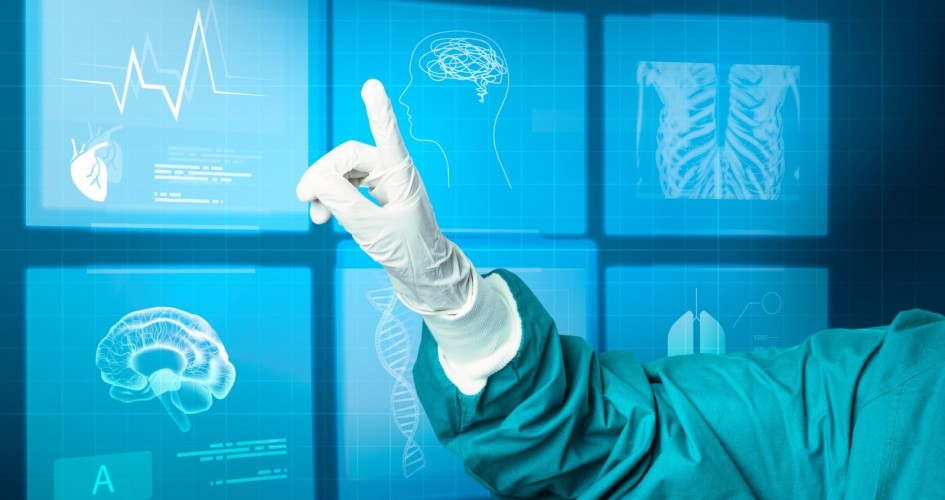Introduction
In recent years, the healthcare industry has witnessed a remarkable transformation with the integration of machine learning. This powerful technology has the potential to revolutionize patient care, disease diagnosis, and treatment planning. Machine learning algorithms fueled by vast amounts of healthcare data can analyze complex patterns, make accurate predictions, and provide personalized insights. In this blog post, we will delve into the world of machine learning in healthcare, exploring its types, impacts, benefits, trends, future role, and incredible potential in the industry.
Types of Machine Learning in Healthcare
Supervised Learning: This type of machine learning involves training models using labeled datasets. By learning from pre-existing data, these models can predict outcomes or classify new data accurately. In healthcare, supervised learning is used for disease diagnosis, predicting patient outcomes, and recommending treatment options based on similar cases.
Unsupervised Learning: Unsupervised learning algorithms are used when the input data is unlabeled or lacks predefined categories. These models can detect hidden patterns, clusters, and associations within large datasets. Unsupervised learning in healthcare can aid in the identification of patient subgroups, the detection of anomalies, and the discovery of potential correlations between symptoms and diseases.
Impacts of Machine Learning in Healthcare
Improved Diagnostics: Machine learning algorithms excel at analyzing vast amounts of medical data, such as patient records, lab results, and imaging scans. By comparing these data points against historical cases, machine learning can assist in accurate disease diagnosis, early detection, and more targeted treatments. This leads to better patient outcomes and reduced medical errors.
Personalized medicine: Each patient is unique, and machine learning algorithms can leverage patient-specific data to provide personalized treatment plans. By considering factors such as genetics, lifestyle, and medical history, machine learning can assist healthcare professionals in tailoring therapies, medications, and dosages, leading to improved efficacy and minimized side effects.

Benefits of Machine Learning in Healthcare:
Enhanced Decision-Making: Machine learning algorithms can quickly process and analyze vast amounts of complex data, providing healthcare professionals with evidence-based insights and recommendations. This aids in making informed decisions about patient care, treatment options, and resource allocation.
Cost and Time Efficiency: By automating certain tasks, machine learning can reduce the time and effort required for administrative duties, such as medical coding and documentation. Additionally, by optimizing workflows and streamlining processes, healthcare providers can allocate their resources more efficiently, leading to cost savings.
Trends in Machine Learning in Healthcare:
Predictive Analytics: Machine learning is increasingly being utilized to forecast patient outcomes, disease progression, and potential health risks. These predictive models can help healthcare professionals intervene early, prevent complications, and improve overall patient management.
Natural Language Processing (NLP): NLP techniques enable machines to understand and extract meaningful information from unstructured data, such as clinical notes, medical literature, and patient conversations. By analyzing these textual data sources, machine learning algorithms can aid in clinical decision-making, medical research, and even patient interactions through chatbots.
The Future Role of Machine Learning in Healthcare:
Drug Discovery and Development: Machine learning algorithms can analyze vast datasets related to molecular structures, genetics, and clinical trial results, assisting in the discovery of new drugs and therapies. This can significantly accelerate the drug development process and lead to more targeted treatments.
Remote Monitoring and Telehealth: With the rise of telehealth and remote patient monitoring, machine learning can play a crucial role in analyzing data collected from wearable devices, sensors, and remote patient monitoring systems. By continuously monitoring vital signs, symptoms, and patient behavior, machine learning algorithms can alert healthcare providers to potential health issues and enable timely interventions.
Conclusion:
Machine learning has emerged as a game-changer in the healthcare industry, offering immense potential to transform patient care, disease management, and medical research. The impacts and benefits of machine learning in healthcare are already evident. Improved diagnostics, powered by machine learning algorithms, have led to earlier detection of diseases, more accurate diagnoses, and better treatment planning. Moreover, the ability of machine learning to personalize medicine based on individual patient characteristics has opened doors to more targeted and effective treatments, minimizing adverse effects and optimizing therapeutic outcomes.
As technology continues to advance, we can expect to witness several exciting trends in machine learning in healthcare. Predictive analytics will become increasingly sophisticated, enabling healthcare professionals to anticipate and intervene in patient care proactively. Natural Language Processing (NLP) techniques will enable machines to understand and extract meaningful information from unstructured data sources, aiding clinical decision-making and medical research.
In the future, machine learning will play a vital role in drug discovery and development. By analyzing vast datasets related to molecular structures, genetics, and clinical trial results, machine learning algorithms can identify potential drug candidates, accelerating the development process and bringing innovative therapies to patients faster.
Furthermore, as telehealth and remote patient monitoring gain prominence, machine learning will be integral in analyzing the continuous stream of data collected from wearable devices, sensors, and remote monitoring systems. By monitoring vital signs, symptoms, and patient behavior, Machine learning algorithms can alert healthcare providers to potential health issues, enabling timely interventions and improving patient outcomes, even from a distance.
The integration of Machine learning in healthcare is an exciting journey that requires collaboration between technology experts, healthcare professionals, researchers, and policymakers. It is essential to ensure the ethical use of patient data, maintain privacy and security standards, and continually validate and refine machine learning algorithms to ensure their accuracy and reliability.
As we embrace the power of machine learning in healthcare, we must remember that it is not a replacement for human expertise but a powerful tool to enhance decision-making, improve patient outcomes, and enable more efficient and effective healthcare delivery. By harnessing the potential of machine learning, we can unlock new frontiers in healthcare and pave the way for a healthier future.
Are you a physician or healthcare practitioner?
Become a My Medical panel member and explore the many benefits of joining. Start your paid medical survey journey here - sign up











